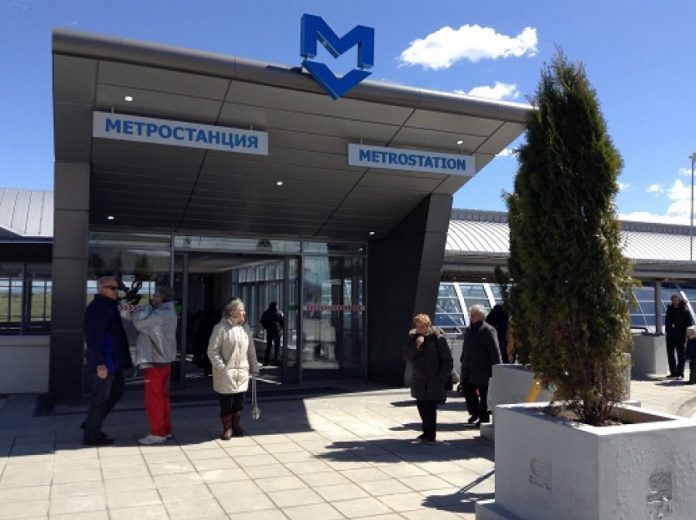By Rumyana Vakarelska
As Easter holidays, generating some of the highest visitor levela and therefore foreign currency expenditure by expats and international visitors to Bulgaria, fade away, Bulgaria’s BGN 2 billion FDI from its expats may fall considerably.
A quick, free ride on the first working day of Sofia tube’s new extension from the Airport to the City, funded by the EU, and the good weather, make for a short-lived good impression as, after 20 minutes, a pile of bigger and smaller bills which it is claimed that I owe but that I did not make, make me dip into the discriminatory situation many Bulgarians abroad find themselves in when visiting their home country.
The reasons for the pending decrease of expat FDI are multiple. A family visit from abroad to Bulgaria costs normally around 2000 BGN, if lucky, slightly lower. Helping older relatives and friends and sustaining property in Bulgaria could add to this cost substantially. Exceptionally bad roads, such as the key highway from Sofia to Plovdiv, add to the cost, as taxis and other alternative means of transportation may be necessary to make a trip a holiday. Many EU destinations much closer to the UK re certainly cheaper and easier to visit for Easter.
Some of these pitfalls have been long registered by many Bulgarian expats and foreign visitors, limiting future trips to a number of Bulgarian destinations to a few days rather than a week or more. There is also the consistent lack of recognition of the EU’s blue medical cards in Bulgaria, among other EU consumer benefits, and the difficulties in sustaining Bulgarian bank accounts for use when in the country. These and other factors are a continuous detriment for the increasing number of Bulgarian expats who have lately limited their investment in Bulgaria as visitors as well as property owners. The EC has noticed the falling industrial FDI to Bulgaria over the last two years, but the Bulgarian authorities have failed so far to retain the investor interest of the Bulgarians abroad.
The limitation of the voting rights of the Bulgarians abroad, i.e. the lack of a dedicated electoral region, the lack of the right to choose candidates when voting abroad in general elections, and finally the inability to vote in local elections (the next local elections are in September 2015) are well known. The lack of a system of skills transfer from the Bulgarians abroad is another lost FDI income for the country. Moreover, the World Bank, among other international institutions, has recently concluded that the lack of skills is a threat to the Bulgarian economy that has to be addressed. This is also a result of the lack of a national policy for the Bulgarians abroad when they are in Bulgaria or interested in reconnecting with its economy and society.
However, the damage of the discriminatory laws against property owners living abroad are the most important financially for Bulgarian expats. They may well upset any next national budget if the Bulgarian government does not remove the current punitive measures to collect the highest property tax and the equally high tax for garbage collection from Bulgarian expat owners. Paradoxically, those who do get discounts live in the country. So, the Bulgarian expats’ BGN 2 billion FDI could simply shrink.
Not a single utility or municipality in Bulgaria has created an email system to communicate with their customers, thus limiting consumer rights. Sofia municipality has outsourced to the Bulgarian Post their mail correspondence with citizens at taxpayers’ cost, but very few receive any information by mail, as I have found in one of the Sofia boroughs tax offices. The lack of information and administrative services tailored to the needs of the Bulgarians abroad and the lack of any benefits from the emerging electronic government for this multi-million group of people have now become intolerable. In addition, the Sofia Municipality Ombudsman is telling me that executing the existing property law in the country is really difficult, leaving expats with more problems as they are not there to stand up for their rights in the majority of freehold buildings in the capital city.
Tax receipts are a key source of income for the national budget and especially for the Sofia municipality budget. I read a list of seven taxes that Sofia residents have to pay, including dog tax if one owns a pet. In front of my home, big trucks collect the garbage I do not normally make three times a day when once is quite enough, while with a twisted ankle from the holes in the street pavement for which my local government body is responsible, I struggled to reach to St. Sofia Church where I was once Christened.
A moving exhibition of a Roman cemetery in the basement of the church opened for visitors in 2013 and a later visit to St. Mary’s Church in Karlovo where the Bulgarian national hero Vassil Levski has been installed as a Deacon almost made me think that leaving behind hundreds of BGN for the garbage I have never made, the penalty fees to connected to the power grid after electricity theft from my flat, almost made me think I have to forget about the punitive laws and the lack of concern for the Bulgarians abroad, but I did not.
The same group of voters also helped only last year the GERB-Reformist Front coalition government come to power. Those expats, who want to make the point against the discriminatory laws they suffer from in Bulgaria, may travel in September to Bulgaria to cast their vote in the local elections as this cannot be done from abroad. Or they could start a petition for the immediate removal of property and garbage collection tax in properties they do not occupy as their main homes, also demanding the creation of a new centre for suitable and fair administrative services for the Bulgarians abroad in Sofia and across the country, as well as information and access to Bulgaria’s electronic government and equal voting rights. This is a cause against the discrimination against the Bulgarians abroad that has been well represented by Drugata Bulgaria’s Party.
Unless the removal or the substantial decrease of the above taxes for the Bulgarians abroad is not introduced, the expat annual FDI of BGN 2 billion will continue to decrease, while the average citizen will remain poorer than they should be. This is because Bulgaria’s number one collective investor is forced to literally put their money in the garbage, not in the economy, for the litter they have not made in the first place.
Copyright@2015 Rumyana Vakarelska, Partner, Team New Europe, producing original editorial content for the mass media and corporate clients. Sponsors for this column contact the author on teamneweurope@yahoo.co.uk






















